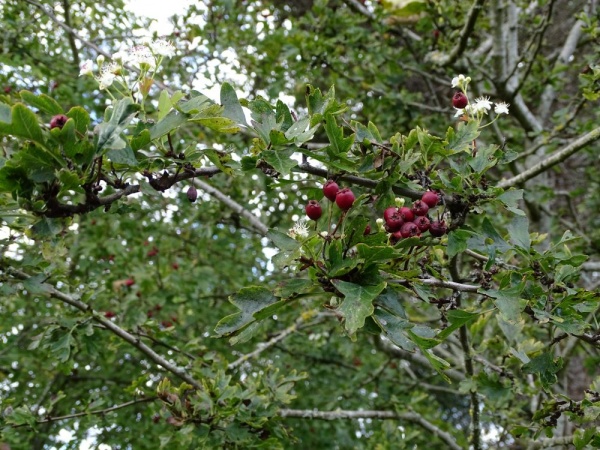Herbs and Climate Change
Thursday 19 June 2025
As the changing climate gives us longer periods of heavy rain and consequent flooding, while at other times abnormally warm or hot and dry conditions pose other challenges, guidance will be given on plantings to combat the worst effects. Harvesting times are altering and it is being noted that the more successful birds and insects which depend on plants for food, are beginning to adapt to these.
Herbs suitable for wetland conditions such as meadowsweet, willow, marshmallow, gypsywort, bogbean, sweet gale, sweet flag and medicinal ferns will be included in the suggested herbs for bog gardens, ponds and damp, shady areas.
Although until now herbs in general have coped well in a variety of conditions, observation has revealed that some may do better if not planted in traditionally helpful sites. Certain herbs, such as marigolds, formerly set in full sun, may do better in partial shade. There will be discussion and sharing of experience as to what may be helpful as we face each new year. Thought will be given to supporting herbs suited to the hotter climate and drought resistant herbs such as houseleek, and orpine as well as to soil composition and health. Organic pest control in the absence of frosts is an added feature.
Ticket options
Thursday 19 June 2025
As the changing climate gives us longer periods of heavy rain and consequent flooding, while at other times abnormally warm or hot and dry conditions pose other challenges, guidance will be given on plantings to combat the worst effects. Harvesting times are altering and it is being noted that the more successful birds and insects which depend on plants for food, are beginning to adapt to these.
Herbs suitable for wetland conditions such as meadowsweet, willow, marshmallow, gypsywort, bogbean, sweet gale, sweet flag and medicinal ferns will be included in the suggested herbs for bog gardens, ponds and damp, shady areas.
Although until now herbs in general have coped well in a variety of conditions, observation has revealed that some may do better if not planted in traditionally helpful sites. Certain herbs, such as marigolds, formerly set in full sun, may do better in partial shade. There will be discussion and sharing of experience as to what may be helpful as we face each new year. Thought will be given to supporting herbs suited to the hotter climate and drought resistant herbs such as houseleek, and orpine as well as to soil composition and health. Organic pest control in the absence of frosts is an added feature.




